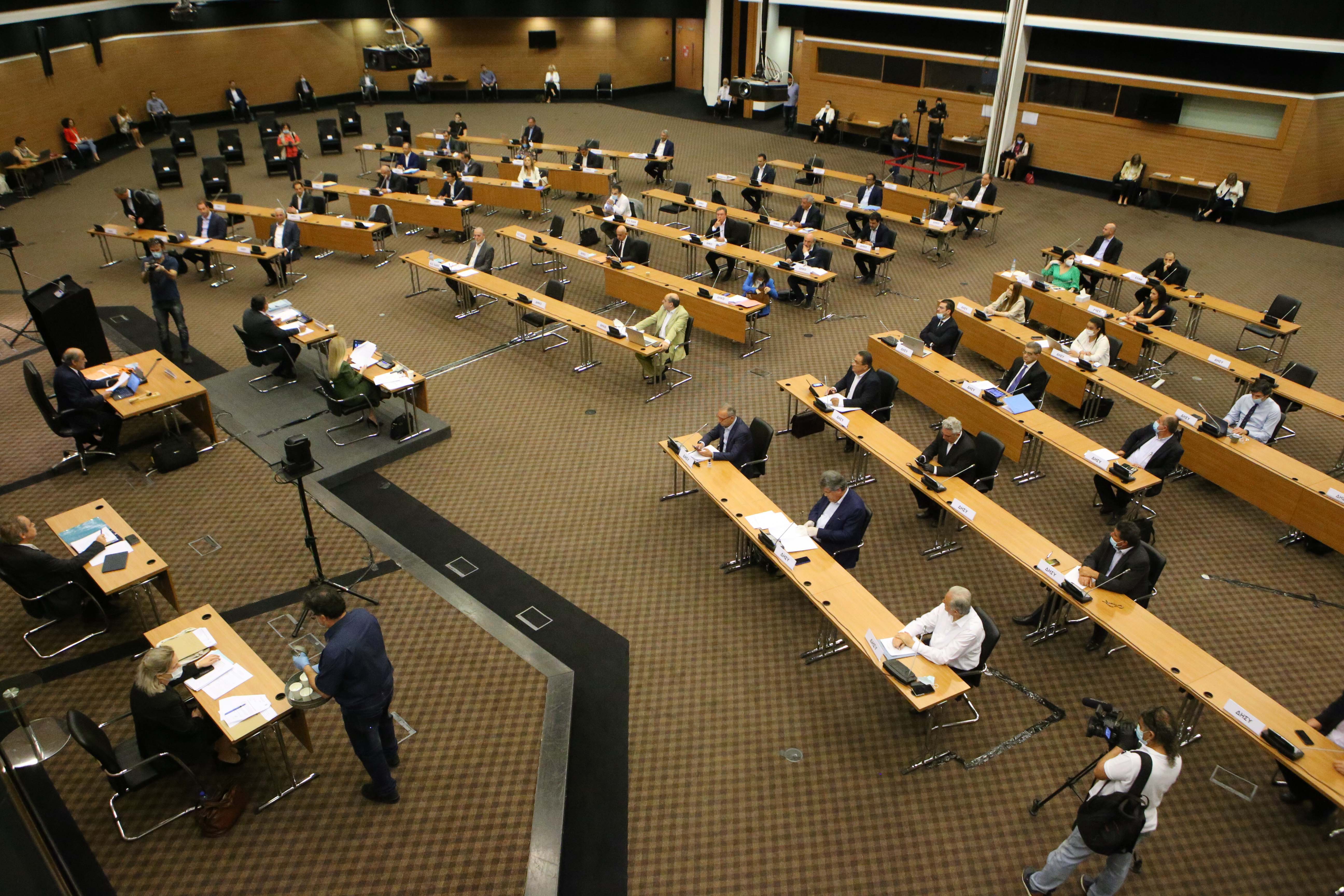Edek and Citizens’ Alliance MP Giorgos Lillikas have asked for a week’s postponement to the vote on the parliamentary code of ethics to give them time to propose and discuss amendments introducing stricter penalties for offending legislators.
Lillikas said the text that emerged after 11 meetings of the House ethics committee between June last year and January was good work “with some serious deficiencies.”
Lillikas said the amendments centred on three matters, the first being conflict of interest, which should not just be a simple verbal statement. Those with conflict must also abstain from voting and the preparation of a bill he said and there must be sanctions for MPs who fail to disclose information.
MPs must also comply with the current sanctions provided for in the code or else face consequences, he said, which were not included.
The code calls for verbal and written reprimands and public apologies for MPs found in violation.
Lillikas said those refusing to apologise in public must also have pay docked. The latter is provided for in the legislature’s regulations for MPs with poor attendance but has never been applied.
Disy MP Michalis Sophocleous described the text as an excellent result that was as good as codes in force in other countries.
He described Lillikas’ amendments as “flash bang grenades” and suggested “there could not be a worse punishment than public ridicule.”
Sophocleous expressed concern that introducing stricter sanctions would lead into a legal quagmire that would eventually cancel the entire effort.
“We always try to act as if we know better than the rest of the world and we’ll draft a better code. No, we won’t,” he said. “I am against procedures that will complicate the code and end up without one.
The Disy MP stressed that the code should be approved unanimously or else it would be conveying a negative message to society.
Council of Europe’s Group of States against Corruption (Greco) has called on Cyprus’ parliament to fully implement a code of ethics before May’s elections.
In its second compliance report for Cyprus published on November 17, Greco said full implementation of recommendations has become “all the more pressing” given recent “serious allegations of undue influence of third parties over some MPs”.
This was a reference to allegations concerning the sale of passports through Cyprus’ citizenship by investment programme.
Of the 16 recommendations made by Greco in 2016 to Cyprus, seven have been fully implemented, six remain partly implemented and three have not been implemented, according to the compliance report.






Click here to change your cookie preferences